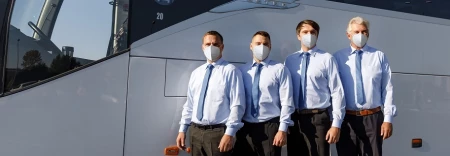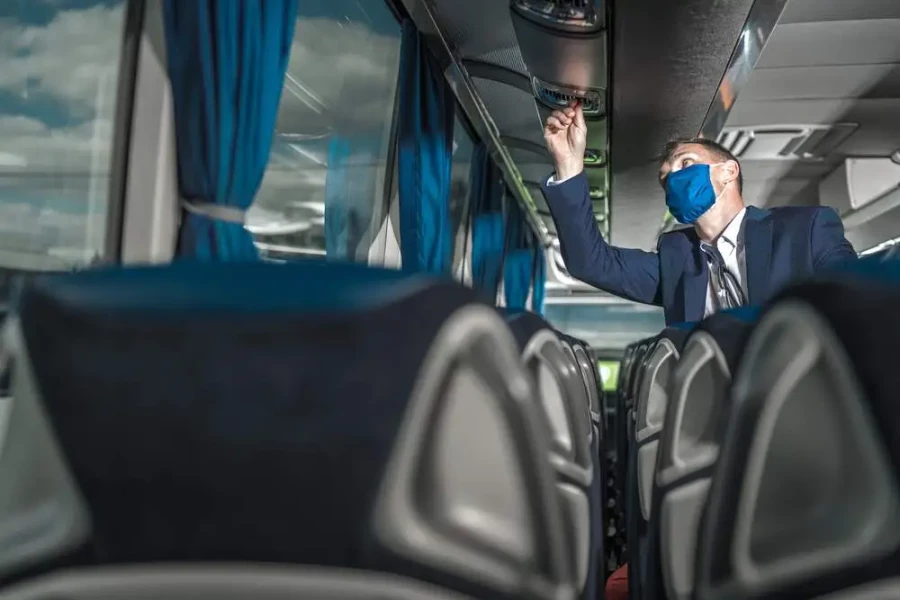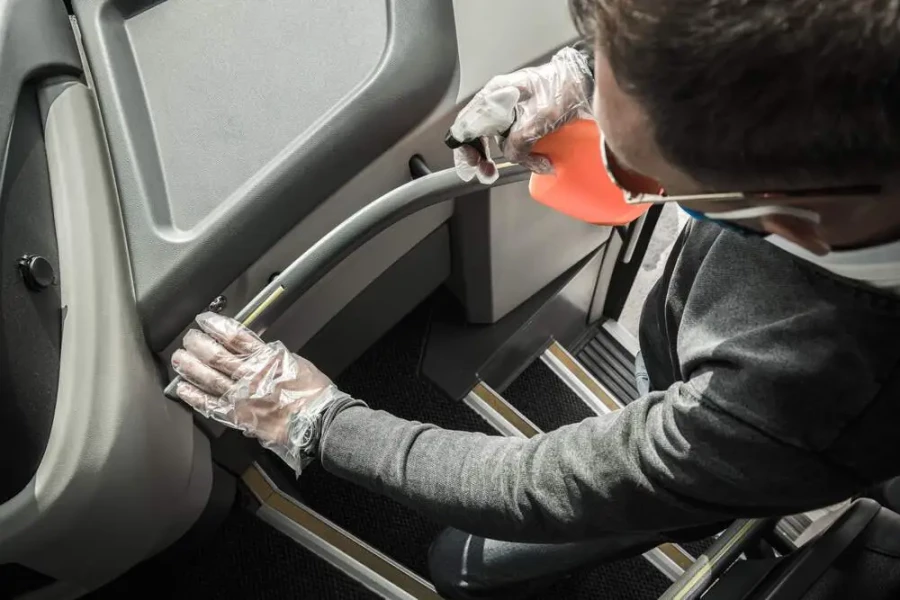BCS Bus Helps You Stay Safe During Your Trips


Do you know how to protect yourself when you go on a bus trip? BCS Bus is going to explain everything we can do for your well-being during the trip!
Now that we have overcome the 2020 health crisis, we can finally travel with peace of mind again. It is still necessary to take precaution, of course, since there are several other diseases that are easy to catch. However, we are allowed to keep protecting ourselves while leaving that panic in the past.
In our staff, we have specialists who regularly research the latest guidelines in terms of health and protection. This way, if anything ever changes again, we will be prepared to offer you service with the latest instructions. Here is a guide of initial information according to the situation as it is today.

Why bus trips can be risky?
In short, riding buses implies you are going to spend some hours in a small, enclosed space whose ventilation will always be worse than if you were outside. That is a sure way to increase the chances of having any viral diseases transmitted by air. The best resource we have to mitigate them is the abundant and continuous supply of fresh air in the cabin, that is, an appropriate ventilation system.
At BCS Bus, all drivers have up-to-date vaccination according to the European guidelines. When it comes to masks, they may use them whenever interacting with your group if you request so. And it is possible for us to provide masks for everyone in your group. Just inform us of all that in advance. When it comes to diseases, all our drivers are encouraged to take days off work when they feel sick.

How are bus cabins ventilated?
In BCS Bus coach buses, fresh air is supplied from the upper part of the cabin through vents and is continuously extracted from the lower portion, where the baggage is stored. That happens all the time while the bus is moving. Our double-decker buses execute a complete air exchange within the cabin every one to three minutes. That means an estimated circulation of 13,000 m³ of air per hour.
Our coach hire europe also uses highly efficient filters in all air intakes in order to provide you with an additional layer of protection. Air is forced through them to retain particles as small as 0.5 micrometers. Those might be simply dust or droplets which typically transport viruses. BCS Bus makes sure to replace all the filters used in each bus at a minimum frequency of six months to ensure their effectiveness.
While we expect this article to inform you and make you feel more comfortable about traveling, we are happy to assist you further if you need. Feel free to contact us by telephone on +31207008860 or to send us a message at booking@bcs-bus.com with your additional questions or a request for additional details on the health protocol we have applied to our buses. We will be pleased to reply!



